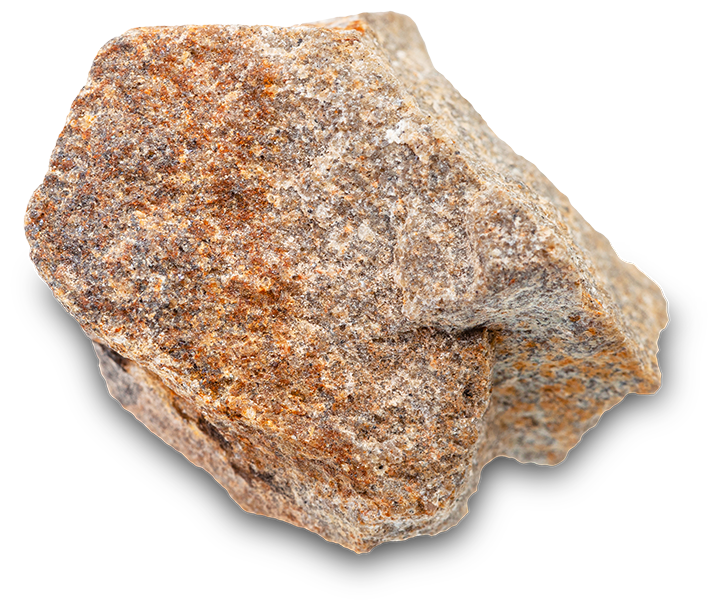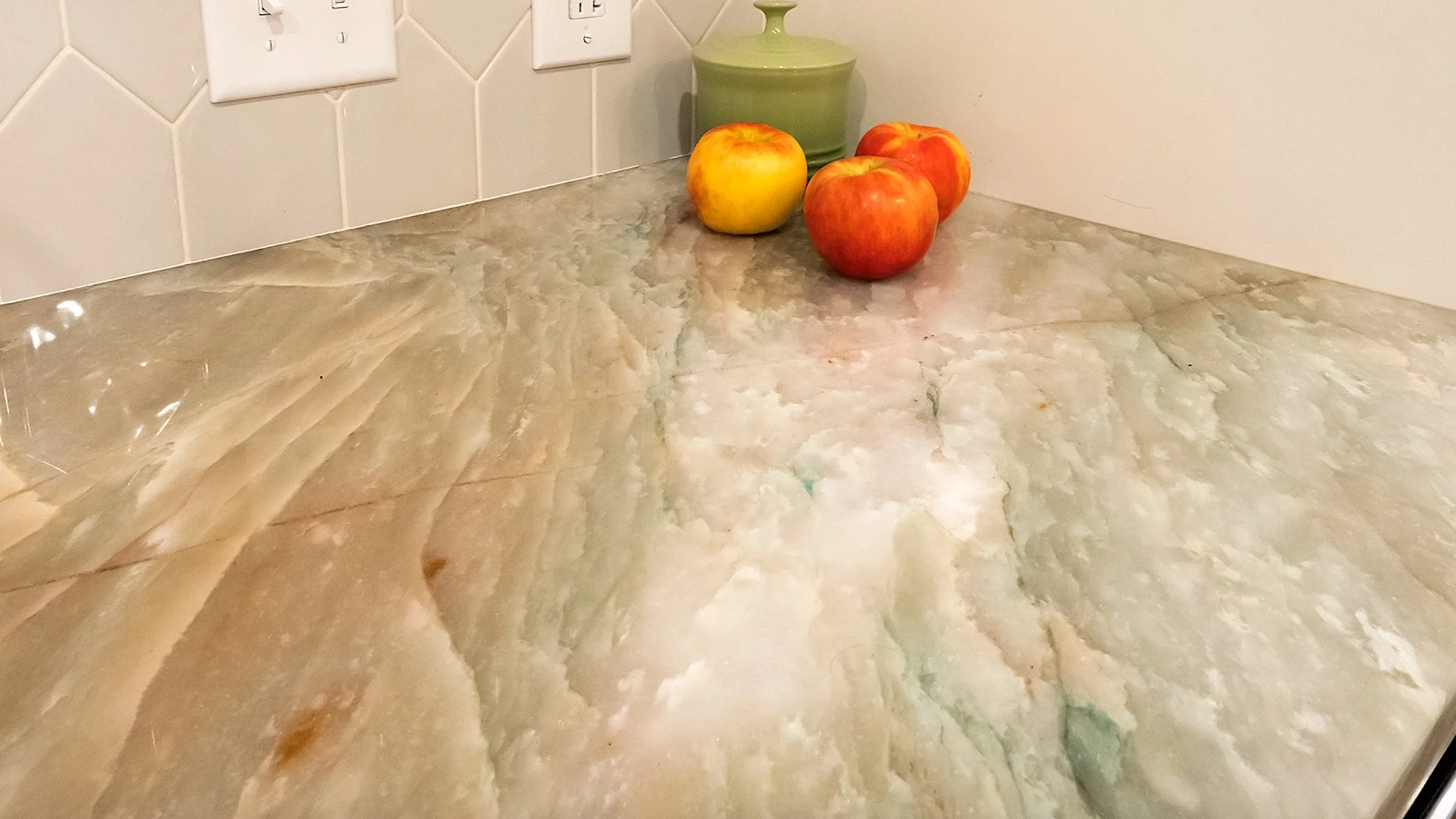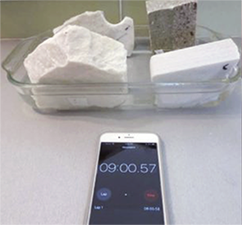What You Need to Know About Quartzite Countertops
From our showroom and shop in Springfield, Missouri, WilgusIQ offers the best selection and installation of quartzite countertops for Missouri and Northern Arkansas, as well as expert information about this superb stone. Click on a question or scroll down for reliable answers about quartzite countertops.
15 Essential FAQ’S About Quartzite Countertops
Crytos Quartzite Countertops in Springfield, MO, by WilgusIQ.
Does Quartzite Make a Good Countertop?
Yes. Quartzite is incredibly durable, relatively simple to maintain, and features all the depth and beauty of natural stone. Whether quartzite is the best countertop for your lifestyle, however, may be determined by the answers to some of the questions below.
What Is Quartzite?
Quartzite is a naturally-occurring stone quarried from the earth. Tiny grains of crystalline mineral quartz —what we know as sand — bond with other rock and organic matter to form sandstone. When sandstone deep within the earth is subjected to heat and pressure it becomes quartzite, “a network of interlocking quartz grains of incredible strength,” says geology.com.
This geological pedigree gives quartzite its durability, its resistance to heat, cracks and scratches, and its uniqueness. No two slabs of quartzite are exactly alike.
Is Quartzite the Same as Quartz?
No. While both are made up primarily of quartz crystals, quartz is an engineered stone made from crushed material. Quartzite is a naturally-occurring stone quarried whole from the earth and cut into slabs. For more information on quartz countertops, see our About Quartz page.
Is Quartzite a Type of Marble?
Although quartzite often has the beautiful veining and luster of marble, geologically speaking it is completely different. Marble is made of calcite, dolomitic marble is calcite with a bit of magnesium, while quartzite is made of mostly mineral quartz. At times, though, a marble slab may contain a small amount of quartz crystal and can be mislabeled either intentionally or by mistake. To avoid problems, only do business with a reputable and knowledgeable shop.
Quartzite often looks like marble,
but the two stones are very different.
WHITE DIAMOND QUARTZITE COUNTERTOPS IN SPRINGFIELD, MISSOURI, BY WILGUSIQ
Does Quartzite Etch?
No. If a slab etches when it comes into contact with acid, it is not pure quartzite. It could be marble or contain traces of calcium carbonate.
What is “Soft Quartzite”?
A mislabeled rock. There is “no such thing as soft quartzite,” states Karen Kirk of the Natural Stone Institute. “There is only one kind of quartzite and it’s hard. A rock labeled as soft quartzite is most likely marble.”
Will Quartzite Scratch?
It’s difficult to scratch real quartzite stone, but not impossible. Quartzite scores a 7 out of 10 on the Mohs scale of mineral hardness, which means it’s harder than a common knife blade. Still, an extremely sharp object can scratch the protective seal on quartzite countertops and even the stone itself if enough force is applied. To protect the seal and avoid dulling your knives, we recommend using a cutting board.
Will Quartzite Crack or Chip?
Under normal circumstances quartzite is extremely crack and chip resistant. Both quartzite fabrication and installation require a great deal of skill. If done incorrectly, chipping or cracking can result. That’s why you want a countertop shop that is expert in working with quartzite.
If you see what looks like a crack or chip in a quartzite slab or countertop, it may actually be a natural fissure or pitting. What’s the difference?
Fissures occur naturally as different minerals come together to form the composite stone. Cracks, on the other hand, are man-made, the result of improper handling. If you run your fingernail over a crack, it will catch on the uneven surfaces. If it’s a fissure, your fingernail will pass over a smooth surface.
Fissures are part of the stone and are not a cause for concern, but significant cracks can harm the integrity of the stone and should be repaired.
Quartzite is composed of tiny crystals. When a crystal is dislodged, it leaves behind a hole. This is called pitting. These pits are not flaws, but larger ones can be filled if you prefer. Chips, however, are pieces that have been knocked out through blunt force. Most chips can be repaired, and WilgusIQ offers repair services if an accident should occur after installation.
Quartzite countertops can be sealed to protect against stains.
ALEXANDRITA QUARTZITE COUNTERTOPS IN SPRINGFIELD, MISSOURI BY WILGUSIQ
Does Quartzite Need to Be Sealed?
The purpose of sealing is to close up the pores of a stone to keep bacteria and stains out. Quartzite is a porous rock and so will benefit from sealing, but it is less porous than marble and granite and generally will not need to be resealed as often. For more information on the range of porosity within quartzite varieties, please see our Top Tips article, “Quartzite: The Natural Stone You Need to Know.”
Will Quartzite Stain?
Liquids that stain can enter into any porous stone, and quartzite is a porous stone. You can protect your quartzite countertops by following recommended cleaning guidelines (see below) and checking the countertops periodically to see if they need resealing. To check, just pour a tablespoon of water on several places along the surface. If the water is absorbed quickly, the countertop needs to be sealed.
Why Have I Heard About Problems With Quartzite?
In addition to the mislabeling issues, some instances have been reported of quartzite showing etch or heat marks. Why is that?
At times, quartzite slabs are infused with resins before they are shipped to the U.S. The resin is thought to give them protection and shine. Certain resins will react and discolor when exposed to acid or high heat. What can you do to avoid this problem?
In addition to asking if a particular slab has been infused with resin, when shopping for quartzite it’s a good idea to test a small piece of the slab. The Natural Stone Institute has published some simple tests that you can read by clicking the accompanying picture.
How Do I Clean Quartzite Countertops?
Sealed quartzite cleans up easily with gentle soap and water and a soft cloth, but abrasive or acid-based cleaners can damage the seal and should be avoided. Simple measures like not allowing spills to sit on countertops and drying them off after cleaning will keep all countertops, including quartzite, looking their best.
Tempest Quartzite Fireplace Surround
Is Quartzite Heat and Fade Resistant?
Quartzite’s natural heat resistance makes it a great choice for fireplace surrounds. It’s durability and resistance to color fading from the sun makes quartzite a popular choice for outdoor kitchens.
What Colors Does Quartzite Come In?
We could tell you that quartzite comes in a stunning variety of colors, from soft white to midnight black with many shades of tan, blue, grey, gold and rust in between, but wouldn’t you rather see for yourself? Just click on this link to our quartzite page to see a curated collection of colors!
How Much Do Quartzite Countertops Cost?
Quartzite slabs generally have a higher starting price than granite and are on par or above engineered quartz, but there is a wide range of price based on availability. To receive a free, no-commitment quote for new quartzite countertops, contact WilgusIQ or click on the button below.







